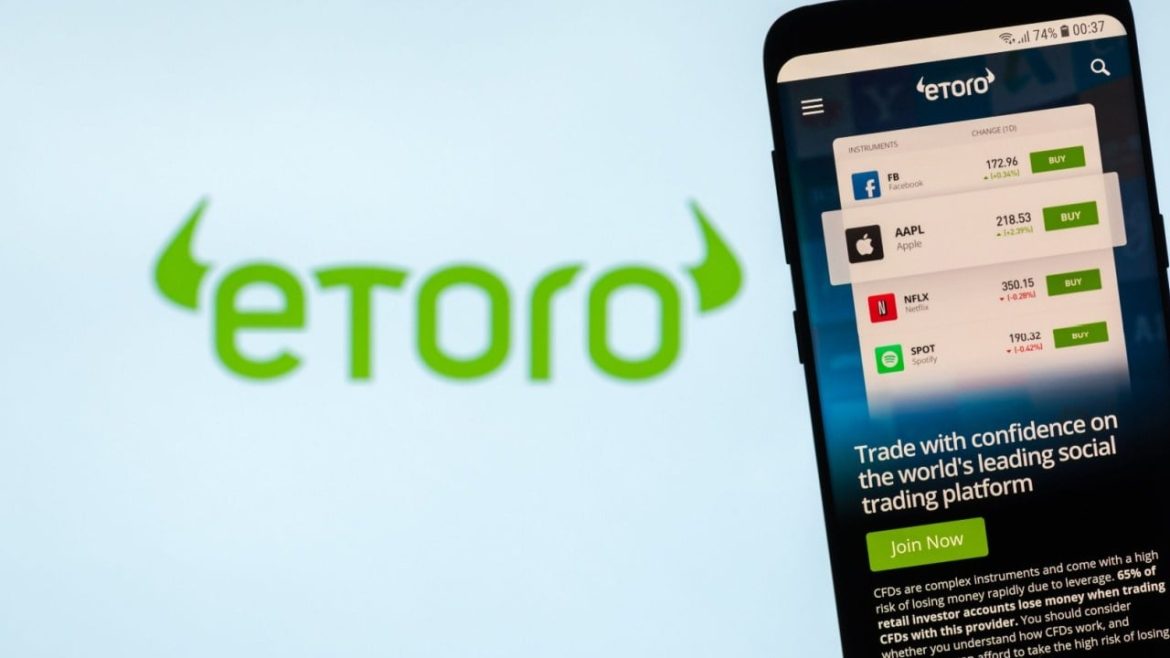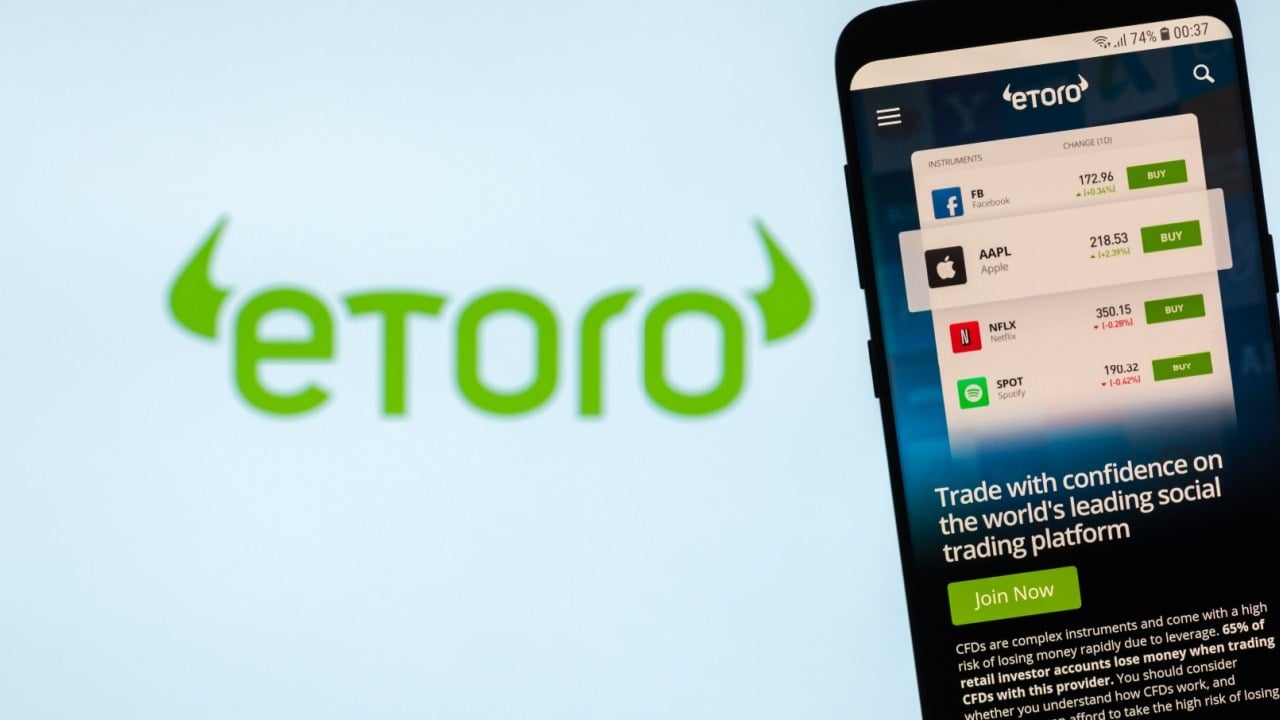eToro’s Bold Step: 24/5 Trading and Tokenized US Equities on Ethereum
Introduction: A New Era in Financial Accessibility
The financial technology landscape is undergoing a profound transformation, and eToro, a pioneer in social trading, is at the forefront of this evolution. By extending trading hours to 24/5 and introducing tokenized US equities on the Ethereum blockchain, eToro is redefining how investors interact with traditional financial instruments. This bold step not only addresses the limitations of conventional trading but also bridges the gap between traditional finance and the decentralized world of blockchain technology.
Extending Trading Hours: 24/5 Access to US Stocks
The Need for Flexibility in Trading
Traditional stock markets operate within rigid timeframes, typically aligning with business hours in their respective regions. This limitation restricts investors in different time zones or those with busy schedules from actively participating in the market. eToro’s introduction of 24/5 trading for its top 100 US stocks and ETFs is a game-changer, offering unparalleled flexibility and accessibility.
Empowering Retail Investors
Retail investors, who often have limited availability during standard market hours, stand to benefit significantly from this extended trading window. The ability to react to overnight news or global events that impact stock prices is crucial for informed decision-making. This democratization of access ensures that investors can manage their portfolios at their convenience, fostering a more inclusive financial ecosystem.
Operational Challenges and Solutions
Offering 24/5 trading requires a robust infrastructure capable of handling increased liquidity and managing potential volatility outside regular market hours. eToro must implement sophisticated monitoring systems and automated trading solutions to ensure seamless order execution and price stability. This includes leveraging advanced algorithms and risk management tools to mitigate potential market disruptions.
Tokenizing Equities: Bridging Traditional Finance and Blockchain
The Concept of Tokenized Equities
Tokenization involves representing ownership of real-world assets, such as stocks, as digital tokens on a blockchain network. eToro’s plan to launch US-listed equities as ERC20 tokens on the Ethereum blockchain is a significant stride towards integrating traditional finance with decentralized technology. This innovation aims to create a more liquid, accessible, and efficient market for these assets.
Benefits of Tokenized Equities
Tokenization offers several advantages that enhance the investment experience:
- Global Accessibility: Tokenized equities can be traded 24/7, eliminating the constraints of traditional exchange hours. This global accessibility opens up investment opportunities to a broader range of investors worldwide.
- Fractional Ownership: Tokenization enables fractional ownership, allowing investors to purchase portions of a share rather than whole shares. This lowers the barrier to entry for expensive stocks, making investing more accessible to smaller investors.
- Enhanced Liquidity: Tokenized assets can be traded more easily and quickly than traditional assets, potentially increasing liquidity and reducing transaction times.
- Reduced Costs: Tokenization streamlines trading processes, reducing costs associated with intermediaries and settlement. This cost efficiency benefits investors by lowering transaction fees.
- Transparency and Security: Blockchain technology provides a transparent and immutable record of ownership and transactions, enhancing trust and security in the investment process.
Navigating the Regulatory Landscape
The tokenization of securities is a relatively new phenomenon, and the regulatory landscape is still evolving. eToro must navigate complex legal and compliance requirements in various jurisdictions to ensure its tokenized equities comply with securities laws. Regulatory clarity is crucial for the widespread adoption of tokenized assets, and eToro’s proactive approach to compliance will be instrumental in shaping the future of this innovative financial instrument.
Implementation Challenges and Solutions
Tokenizing equities presents several challenges that eToro must address:
- Custody Solutions: Securely storing and managing tokenized assets is essential. eToro must implement robust custody solutions to protect investors’ assets from theft or loss. This includes leveraging secure wallets and multi-signature authentication to ensure the safety of digital assets.
- Interoperability: Ensuring interoperability between different blockchain platforms and traditional financial systems is crucial for seamless trading and settlement. eToro must develop integration solutions that facilitate smooth interactions between tokenized assets and conventional financial instruments.
- Scalability: The Ethereum network’s scalability limitations could pose challenges as the volume of tokenized equity transactions increases. eToro must explore solutions such as layer-2 scaling or alternative blockchain networks to address potential scalability issues.
- Security Measures: Tokenized assets are susceptible to hacking and smart contract vulnerabilities. eToro must implement rigorous security measures, including regular audits and the use of secure smart contract protocols, to mitigate these risks.
Spot-Quoted Futures and CME Group Collaboration
Integrating Traditional Financial Instruments
As part of its broader strategy, eToro is introducing spot-quoted futures through a collaboration with CME Group. This allows users to trade futures contracts based on real-time spot prices, providing another tool for managing risk and speculating on market movements. The integration of traditional financial instruments with eToro’s platform caters to both seasoned traders and newcomers, bridging the gap between traditional and digital finance.
Enhancing Trading Opportunities
The introduction of spot-quoted futures demonstrates eToro’s commitment to providing a comprehensive trading experience. By offering a diverse range of financial instruments, eToro empowers investors to diversify their portfolios and explore new trading strategies. This integration of traditional and digital finance creates a more dynamic and flexible trading environment.
The Vision of Democratized Finance
Empowering Investors Worldwide
Yoni Assia, eToro’s Co-founder and CEO, has emphasized the company’s belief in tokenization as a means to democratize finance. The move towards tokenizing US-listed equities aligns with this vision, aiming to provide greater access and flexibility to investors worldwide. By leveraging blockchain technology, eToro is creating a more inclusive financial ecosystem that empowers individuals to participate in the global markets.
The Future of Investing
eToro’s initiatives represent a significant step towards the future of investing. By combining extended trading hours with tokenized assets, the company is creating a more accessible, efficient, and transparent financial ecosystem. This approach has the potential to reshape how individuals interact with the financial markets and build wealth. The seamless integration of traditional finance with decentralized technology is paving the way for a new era of financial innovation and inclusivity.
Conclusion: A Bold Step Towards a Tokenized Future
eToro’s launch of 24/5 trading and the introduction of US-listed equities as ERC20 tokens on the Ethereum blockchain signifies a significant shift in the financial landscape. While challenges remain, the potential benefits of increased accessibility, fractional ownership, and enhanced liquidity are undeniable. This bold move positions eToro at the forefront of financial innovation, paving the way for a future where traditional finance seamlessly integrates with the decentralized world of blockchain technology. By empowering investors globally, eToro is not only redefining the investment experience but also shaping the future of finance. This visionary approach ensures that eToro remains a leader in the evolving financial technology landscape, driving progress and democratizing access to financial markets for all.





